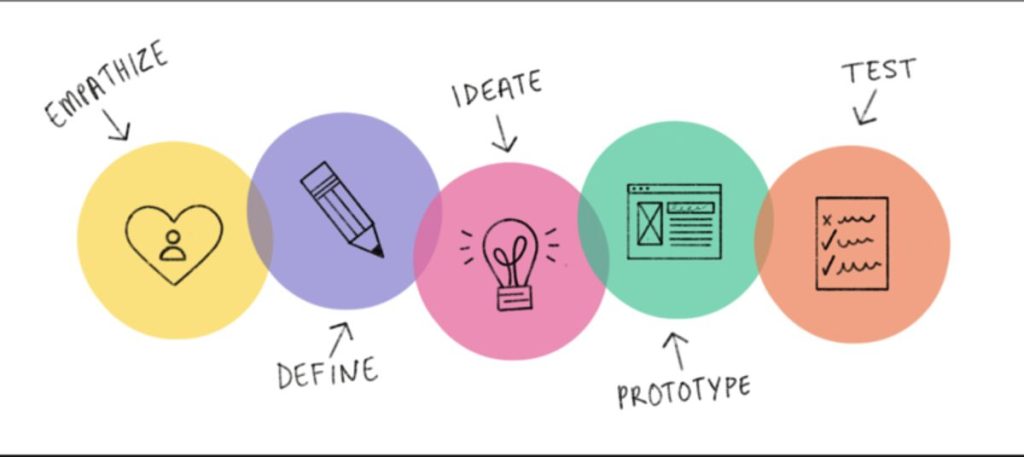Investing can seem scary for beginners, but it’s an important step towards building wealth and securing your financial future. This guide will help you understand the best investment options for beginners, making it easier for you to start your investment journey confidently. From savings accounts to real estate, there are many ways to grow your money. Let's explore the top five investment choices that are perfect for newcomers!
Key Takeaways
- High-yield savings accounts offer a safe place for your money with better interest than regular accounts.
- The stock market can be a great way to grow your wealth, but it's important to be aware of the risks.
- Mutual funds let you invest in a variety of stocks and bonds, making it easier to diversify your investments.
- Bonds are generally safer than stocks and can provide steady income through interest payments.
- Real estate can be a profitable investment, allowing you to earn money through rent and property value increases.
1. High-Yield Savings Accounts
High-yield savings accounts are a fantastic way to earn more on your savings compared to regular accounts. These accounts often offer interest rates that are about 10 times higher than the national average rate of 0.45%. This means your money can grow faster while still being easily accessible when you need it.
Why Choose a High-Yield Savings Account?
- Better Interest Rates: You can earn more on your savings.
- Easy Access: You can withdraw your money whenever you need it.
- Safety: Most accounts are insured by the FDIC, protecting your funds up to $250,000.
How to Get Started
- Research Online Banks: Look for banks that offer high-yield savings accounts.
- Compare Rates: Check the interest rates and fees associated with different accounts.
- Open an Account: Once you find a good option, you can usually open an account online in just a few minutes.
Starting with a high-yield savings account is a smart move for anyone looking to save money effectively. It’s a simple way to make your savings work harder for you!
2. Stock Market
Investing in the stock market can be an exciting way to grow your money! It’s a chance to own a piece of companies you believe in. Here’s what you need to know:
Understanding Stocks
When you buy a stock, you’re buying a small part of a company. Stocks can go up and down in value, but over time, they have the potential to earn more than other types of investments.
How to Invest in Stocks
Here are some common ways to invest in stocks:
- Direct Ownership: You can buy shares directly through an online trading account.
- Mutual Funds: These funds pool money from many investors to buy a variety of stocks, which helps spread out risk.
- ETFs: Exchange-Traded Funds are similar to mutual funds but trade like stocks on the market.
Risks and Rewards
Investing in stocks can be risky, but it can also be rewarding. Here’s a quick look at the pros and cons:
| Pros | Cons |
|---|---|
| Potential for high returns | Can lose value quickly |
| Ownership in companies | Requires research |
| Dividends can provide income | Market can be unpredictable |
Investing in the stock market is a journey. It’s important to stay informed and be patient as you watch your investments grow.
Getting Started
If you’re new to investing, here are some tips to help you:
- Start small: You don’t need a lot of money to begin.
- Do your research: Learn about the companies you want to invest in.
- Stay diversified: Don’t put all your money into one stock; spread it out to reduce risk.
With the right approach, the stock market can be a great way to build your wealth over time!
3. Mutual Funds
Mutual funds are a fantastic way for beginners to dive into investing without feeling overwhelmed. They allow you to invest in a mix of stocks and bonds all at once! This means you don’t have to pick individual investments, which can be tricky. Instead, you can buy a share of a fund that holds many different assets, making it easier to spread out your risk.
What Are Mutual Funds?
Mutual funds pool money from many investors to buy a variety of investments. This can include stocks, bonds, or other securities. By investing in a mutual fund, you get a slice of a larger pie, which helps reduce the risk of losing money if one investment doesn’t do well.
Types of Mutual Funds
There are several types of mutual funds to consider:
- Equity Funds: These invest mainly in stocks and can offer high returns, but they also come with higher risks.
- Bond Funds: These focus on bonds and are generally safer, providing steady income.
- Index Funds: These track a specific market index, like the S&P 500, and usually have lower fees.
Why Choose Mutual Funds?
- Diversification: Investing in a mutual fund means your money is spread across many different investments, which can lower your risk.
- Professional Management: Many mutual funds are managed by experts who know how to pick the best investments.
- Accessibility: You can start investing in mutual funds with relatively low amounts of money, often as little as $1,000 or even less in some cases.
Remember, mutual funds can be a great way to start your investment journey. They offer a simple way to build a diversified portfolio without needing to be a financial expert.
Getting Started with Mutual Funds
To invest in mutual funds, follow these steps:
- Decide on Your Goals: Think about what you want to achieve with your investments.
- Choose a Fund: Research different funds to find one that matches your goals and risk tolerance.
- Open an Account: You can invest through a brokerage account or directly with a mutual fund company.
In summary, mutual funds are a smart choice for beginners looking to invest. They provide a way to grow your money while minimizing risk, making them a solid option for anyone starting their investment journey. Happy investing!
4. Bonds
Bonds are a great way to invest your money with less risk compared to stocks. When you buy a bond, you’re basically lending money to a company or the government, and in return, they promise to pay you back with interest. This means you can earn a steady income over time!
Why Invest in Bonds?
- Stable Returns: Bonds usually offer more predictable returns than stocks.
- Lower Risk: They are generally considered safer, making them a good choice for beginners.
- Diversification: Adding bonds to your investment mix can help balance out the risks of stocks.
Types of Bonds
- Government Bonds: Issued by the government, these are very safe.
- Corporate Bonds: Issued by companies, they can offer higher returns but come with more risk.
- Municipal Bonds: Issued by states or cities, these often come with tax benefits.
Investing in bonds can be a smart way to grow your money while keeping risks low. It’s like having a safety net for your investments!
How to Get Started
- Research: Look into different types of bonds and their risks.
- Choose a Broker: Find a reliable broker to help you buy bonds.
- Start Small: You don’t need a lot of money to start investing in bonds. Even small amounts can add up over time!
5. Real Estate
Investing in real estate can be a fantastic way to grow your wealth over time. Many beginners find it a solid investment option because it can provide both rental income and potential appreciation in property value. Here’s a quick look at why real estate might be right for you:
Benefits of Real Estate Investing
- Steady Income: Rental properties can provide a consistent cash flow.
- Appreciation: Over time, properties often increase in value.
- Tax Advantages: There are various tax benefits associated with owning real estate.
Getting Started in Real Estate
- Research the Market: Understand local property values and trends.
- Set a Budget: Know how much you can afford to invest.
- Consider Financing Options: Look into mortgages or other financing methods.
Real estate investing can be a great way to build wealth, but it’s important to do your homework first.
Types of Real Estate Investments
- Residential Properties: Single-family homes or apartments.
- Commercial Properties: Office buildings or retail spaces.
- Real Estate Investment Trusts (REITs): A way to invest in real estate without buying physical properties.
In summary, real estate can be a rewarding investment choice for beginners. With the right approach, you can enjoy the benefits of passive income and long-term growth. Remember, passive investment strategies, such as real estate crowdfunding, limited partnerships, and REITs, are generally considered more accessible for beginners.
Wrapping It Up: Your Investment Journey Begins
So there you have it! Investing might seem a bit scary at first, but it’s really just a smart way to grow your money over time. Remember, starting small is totally okay. Whether you choose stocks, bonds, or even real estate, the key is to keep learning and stay patient. As you get more comfortable, you can explore different options and find what works best for you. Just take it one step at a time, and soon enough, you’ll be on your way to building a brighter financial future. Happy investing!
Frequently Asked Questions
What is a high-yield savings account?
A high-yield savings account is a type of bank account that pays more interest than a regular savings account. It's a safe place to keep your money while earning some extra cash.
How can I start investing in the stock market?
To start investing in the stock market, you can open a brokerage account, choose stocks or funds you like, and buy shares. It's good to learn about the companies before you invest.
What are mutual funds?
Mutual funds are investment programs funded by many investors that buy a variety of stocks, bonds, or other securities. They help spread out risk because your money is invested in many places.
What are bonds and how do they work?
Bonds are loans that you give to companies or governments. In return, they promise to pay you back the money on a set date and give you interest until then.
Is investing in real estate a good idea?
Investing in real estate can be good because you can earn money from rent and your property may increase in value over time. However, it also requires a lot of money and effort.
How much money do I need to start investing?
You can start investing with a small amount, even as little as $100. Many platforms allow you to buy fractional shares, so you don't need a lot of money to begin.
What should I consider before investing?
Before investing, think about how much risk you can handle, your financial goals, and how long you plan to invest. It's important to have a plan.
Can I lose money when I invest?
Yes, investing always comes with risks, and you can lose money. It's important to do your research and understand what you're investing in.




